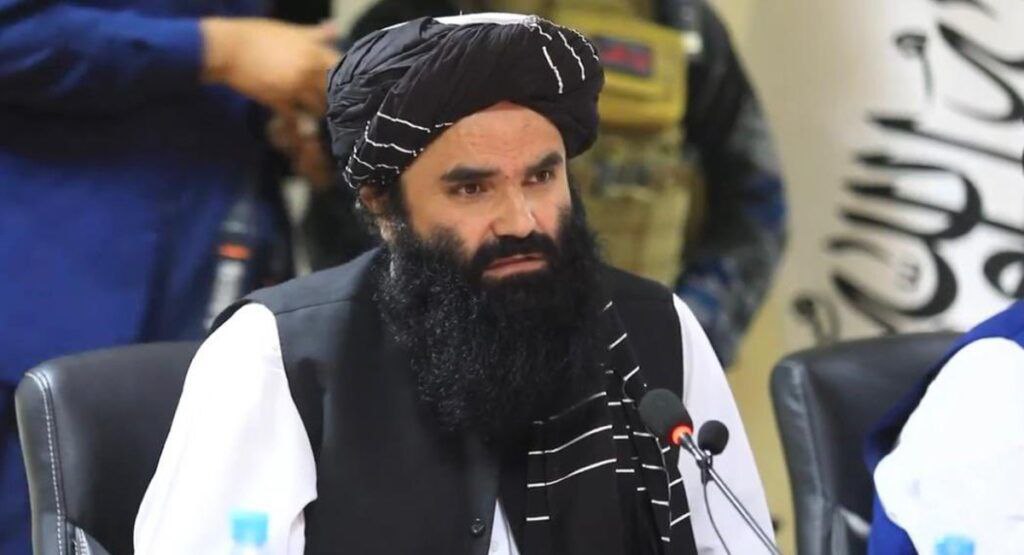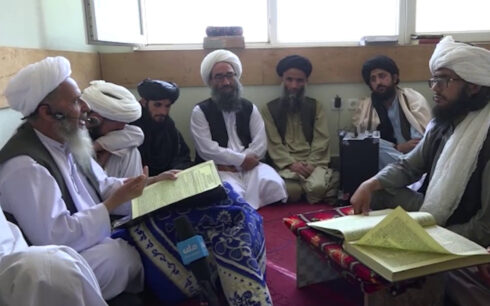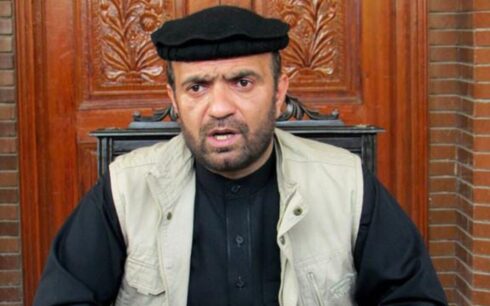Taliban interior minister Sirajuddin Haqqani expressed his disappointment regarding the internal power disputes among Taliban members during a meeting with the group’s supreme leader, Hibatullah Akhundzada.
Haqqani emphasized that the division of power should not lead to conflicts within the Taliban. He voiced concerns about the fragmentation of the Taliban into various factions and previously criticized the monopolization of power in Afghanistan.
His statement comes amid reports from the United Nations Security Council last year suggesting that Haqqani was attempting to undermine Akhundzada’s authority by garnering support for Mohammad Yaqoob Mujahid, the son of Taliban founder Mullah Mohammad Omar.
In recent months, Akhundzada has repeatedly called for obedience to his orders and internal unity within the Taliban, emphasizing this point more than four times in the past four months. The Ministry of Defense recently released video clips of senior Taliban officials’ speeches from a meeting in Kandahar, attended by Akhundzada last Thursday.
“The division of responsibilities should not lead to conflicts among us. We are united as before under the leadership of one Amir. I am saddened by the fragmentation of the Taliban into various factions,” Haqqani told the participants.
In February 2023, during a graduation ceremony in Khost province, Haqqani indirectly accused the Taliban leader of monopolizing power. He stated that monopolization of power and imposing one’s views on others is unacceptable and not in the interest of the people and the country. The Taliban Minister of Defense, Yaqub Mujahid, has also often criticized the monopolization of power in his speeches.
Analysts believe that several senior Taliban officials, including Haqqani, Mujahid, and Abdulhaq Wasiq, the chief of intelligence, are dissatisfied with Akhundzada’s approach to governing Afghanistan. Akhundzada has held multiple meetings with Haqqani, Mujahid, and Wasiq in recent months, including a significant meeting in Kandahar following Haqqani’s visit to the UAE in July.
At a recent gathering in Kandahar, attended by the highest-ranking Taliban officials, Akhundzada stated that differences and distrust would lead to their defeat, urging Taliban members to obey orders as “lifeless as a corpse.” He reiterated this call for obedience during visits to Ghor province in July and Kabul in May, as well as during the Eid prayer in Kandahar in April.
Faiz Zaland, a university lecturer, commented on Akhundzada’s emphasis on obedience: “Hibatullah’s emphasis on obedience to the Amir’s orders is a common matter in governance. Disagreements and differing viewpoints in governance are a principle worldwide.”
Meanwhile, Afghan citizens have criticized the Taliban’s power-seeking approach, calling for a focus on human rights, particularly for women. Over the past three years, the lack of a constitution, the dissolution of political parties and civil institutions, and the absence of freedom of expression have been significant challenges under Taliban rule.
Analysts believe the Taliban leadership is primarily focused on maintaining power rather than addressing the people’s challenges.





